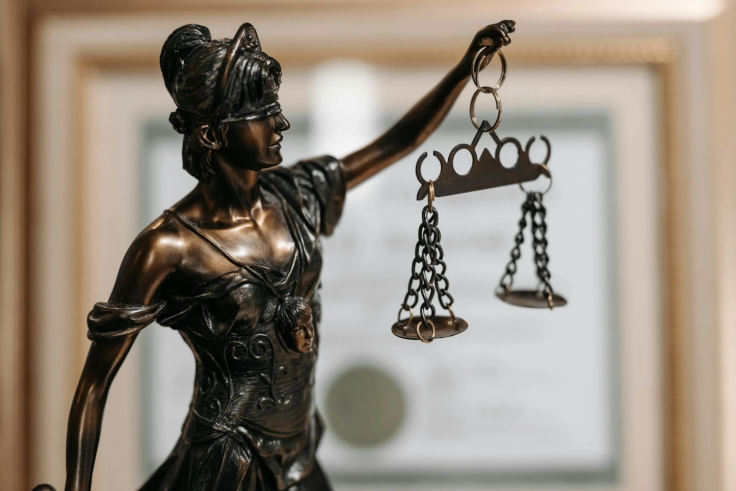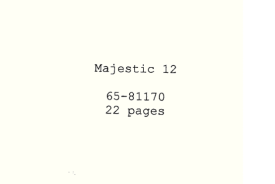House Republicans Threaten to Defund Truman Scholarship Over Alleged Liberal Bias
ByHouse Republicans have raised concerns about the prestigious Truman Scholarship, alleging that it disproportionately favors liberal candidates and lacks ideological diversity.
The contention arose after a report from the American Enterprise Institute (AEI) highlighted a perceived imbalance in the political leanings of recent scholarship recipients.

Allegations of Liberal Bias
The controversy began when Committee Chair Virginia Foxx, along with subcommittee chairs Burgess Owens and Robert Aderholt, sent a letter to the Truman Scholarship Foundation. The letter expressed their dissatisfaction with the current state of the scholarship's recipient pool, which they claim shows a significant liberal bias. According to the AEI report, of the 182 Truman winners between 2021 and 2023, only six recipients supported traditionally conservative causes. In contrast, 74 winners were identified as supporting progressive issues.
The Truman Scholarship, established to recognize and support individuals demonstrating exceptional potential for public service, has long been a coveted award among students. However, the Republicans argue that the scholarship's selection process should reflect a broader spectrum of political viewpoints, particularly as it is funded by taxpayer money.
The committee's letter argued that it is unreasonable to assume only liberal students possess exceptional potential for public service. They emphasized that, as a taxpayer-funded award aimed at preparing future civic leaders, the Truman Scholarship should represent the full spectrum of the nation's values, viewpoints, and interests.
Response from the Truman Scholarship Foundation
Tara Yglesias, the foundation's deputy executive secretary, who oversees the scholar selection process, responded to the allegations by questioning the methodology and conclusions of the AEI report. Yglesias argued that the report broadly categorized issues as conservative or progressive without sufficient justification.
Yglesias explained that the foundation does not inquire about the political beliefs of scholars and often remains unaware of their ideological positions. She expressed concern that the report's categorization of scholars could create unnecessary divisions, whereas most scholars prefer to concentrate on their areas of interest.
Yglesias emphasized that the foundation's primary focus is on the potential for public service rather than political alignment. The selection process, according to her, is designed to identify individuals who demonstrate a strong commitment to serving the public, irrespective of their political views.
Despite the foundation's defense, the Republicans have called for more transparency and a review of the scholarship's selection criteria. The committee's letter concluded by asking the foundation to clarify its efforts to ensure a wide range of perspectives and to outline steps it will take to recruit a more ideologically diverse candidate pool in the future.
Broader Implications and Reactions
The debate over the Truman Scholarship is part of a larger discourse on perceived ideological biases within academic and philanthropic institutions. The AEI report also drew parallels to the UK-based Rhodes Scholarship, suggesting a similar bias in favor of progressive candidates. These findings have fueled concerns among conservatives about the representation of their viewpoints in prestigious scholarship programs.
Supporters of the Republicans' stance argue that ensuring a diverse range of political perspectives among scholarship recipients is crucial for fostering balanced and inclusive public discourse. They believe that public service should encompass a wide array of viewpoints and that scholarships should reflect this diversity.
Critics, however, contend that the focus on political alignment detracts from the primary goal of identifying individuals with a genuine commitment to public service. They argue that the emphasis should remain on the applicants' achievements and potential to contribute to society rather than their political beliefs.
The controversy has also sparked discussions about the role of external organizations, like the AEI, in shaping public perception and influencing policy decisions. The AEI, a right-leaning think tank, has been criticized for its approach to characterizing the scholarship winners' interests and for not responding to questions about its analysis.
As the debate continues, the future of the Truman Scholarship remains uncertain. The foundation is expected to address the committee's concerns and provide a response outlining any potential changes to its selection process. Whether these changes will satisfy the demands for greater ideological diversity remains to be seen.
In the meantime, the discussion highlights the ongoing challenges in balancing merit, diversity, and representation in publicly funded programs. It underscores the complexities involved in ensuring that such programs remain fair and inclusive while also addressing concerns about potential biases.
© 2026 University Herald, All rights reserved. Do not reproduce without permission.








